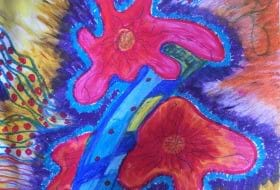What is The Impact of Expressive Therapy on NDIS Participants?

As the National Disability Insurance Scheme (NDIS), people with impairments can access the support they need. But beyond practical and material support, the value of mental and emotional health is increasingly recognised. This is why expressive therapy in Australia offers a different kind of support to NDIS participants.
Expressive therapies take various approaches and use art, music, drama, and movement to explore emotions, improve communication, and encourage self-discovery. This expressive therapy in Australia can also help participants too.
Coping with Trauma and Different Experiences
NDIS participants deal with issues that can cause emotional distress. Expressive therapies provide a safe environment to process these events and develop constructive coping strategies.
Improving Communication Skills
Many impaired people deal with issues that can cause emotional distress. NDIS expressive therapy provides people with speech and language difficulties an alternative way to express their thoughts and feelings. Participants can express themselves more effectively through dance and art.
Increased Self-Worth and Self-Esteem
Being creative is powerful. Promotes a sense of achievement and increases self-esteem. This is particularly important for NDIS participants who may face social barriers.
Encouraging Social Interaction
Group participation is a common feature of expressive therapy sessions. It encourages communication and collaboration, which can be very beneficial for participants who experience social distancing or isolation.
Addressing Mental Health Issues
When used in combination with traditional therapies, NDIS expressive therapy in Australia can be a useful technique for treating anxiety, depression and other mental health problems in participants.
While no one answer works for everyone, NDIS expressive therapy is promising for the participants. Promoting emotional health and self-expression can give individuals the tools they need to lead more fulfilling lives. By exploring the potential of expressive therapy, the experts can open the door to a more comprehensive NDIS support strategy.
If you find this post practical, share it with your loved ones, and stay tuned with us for more updates!
Comments
Post a Comment